2018 Featured Speakers

Guy Palmer (CRWAD Council Keynote Speaker),
Regents Professor, Jan and Jack Creighton Endowed Chair and Senior Director, Paul G. Allen School for Global Animal Health, Washington State University.
“Animal health as a Driver to Achieve the Sustainable Development Goals.”
Dr. Palmer holds the Jan and Jack Creighton Endowed Chair at Washington State University (WSU) where he is Regents Professor of Pathology & Infectious Diseases. The founding director of WSU’s Paul G. Allen School for Global Animal Health, he currently leads university-wide efforts as Senior Director of Global Health. A board-certified pathologist, Dr. Palmer leads global health programs in Africa and Central America as well as directing the Robert R. Fast Infectious Diseases Research Laboratory. He heads the NIH Training Program in Infectious Diseases and holds a NIH MERIT award for research on pathogen emergence. He holds a joint appointment at the Nelson Mandela African Institution of Science and Technology and directs the Bill & Melinda Gates Foundation supported Integrated PhD Program between WSU and the Mandela Institution. Dr. Palmer was elected to the National Academy of Medicine in 2006 and is an AAAS Medical Sciences Fellow. Dr. Palmer has been recognized with Cornell’s Poppensiek Professorship, the IBM Professorship at Colby College, the Schalm Lecturership at the University of California, the Ramsey Lectureship at Iowa State University, the Distinguished Scientist Lectureship at NIH, the Science in Medicine Lectureship at the University of Washington, and the Merck Award for Creativity. Dr. Palmer holds honorary doctorates from the University of Bern (Dr.Med.Vet, 2011) and Kansas State University (PhD, 2016).

Laurel Gershwin (2018 AAVI Distinguished Veterinary Immunologist),
Distinguished Professor, University of California, Davis.
“Comparative Immunobiology: from Asthma to Vaccines.”
Dr. Gershwin received her DVM from the University of California, Davis in 1971. After an internship at the Angell Memorial Animal Hospital in Boston, MA and two years in private veterinary practice, she returned to UCD where in 1979 she obtained a PhD in Microbiology, with an emphasis in Immunology. Dr. Gershwin took and passed the board examination in virology, immunology, and bacteriology/mycology to become a diplomate of the American College of Veterinary Microbiologists in 1980. She has been a faculty member at the School of Veterinary Medicine, UCD since 1979 and has taught Immunology to students of Veterinary Medicine for 38 years. Dr. Gershwin’s research has emphasized immune responses in the lung with particular emphasis on IgE mediated pathogenesis, Bovine Respiratory Syncytial Virus, and associated vaccinology.

Ab Osterhaus (2018 ACVM Distinguished Veterinary Microbiologist),
Professor and Founding Director, Research Center for Emerging Infections and Zoonoses, University of Veterinary Medicine Hannover, Germany.
“A One Health Approach in Combatting Emerging Infections.”
Prof. Osterhaus is founding director of the newly established Research Center for Emerging Infections and Zoonoses (RIZ) at the University of Veterinary Medicine Hannover, Germany. As former head of the Department of Viroscience of the Erasmus Medical Center in Rotterdam, he guided on a daily basis over 100 scientists in their quest for scientific excellence. His research program followed a novel integrated “viroscience” concept, bringing together world-leading scientists in molecular virology, immunology, epidemiology, pathogenesis, and intervention studies on human and animal virus infections. Major achievements of his work include the discovery of more than 60 new human and animal viruses, elucidation of the pathogenesis of major human and animal virus infections, and development of innovative intervention strategies. His work has enabled health authorities, as WHO, to combat disease outbreaks like SARS, MERS and avian influenza. As Chief Scientific Officer at Viroclinics Biosciences BV, Osterhaus leads effective testing and refining of preventive, therapeutic, and diagnostic tools. He has been mentor for more than 80 PhD students, holds several key patents, and is the author of more than 1200 papers in peer-reviewed journals, cited over 45,000 times, with an H index > 100. Most of all, Ab Osterhaus firmly believes scientists have a role to play in translating their knowledge for the benefit and protection of society.

Alfonso Torres (2018 AVEPM Calvin Schwabe Award),
Professor Emeritus – Cornell University, and former Deputy Administrator for Veterinary Services at the U.S. Department of Agriculture.
“Counteracting Animal Diseases at the Global Level.”
A native of Bogotá, Colombia, Dr. Alfonso Torres holds a DVM from the National University of Colombia, a M.S. in veterinary pathology from the University of Nebraska, and a PhD in medical microbiology from the University of Nebraska Medical Center. Dr. Torres served as Deputy Administrator of USDA-APHIS-Veterinary Services from 1999 to 2002. He was also the US’ Chief Veterinary Officer and US delegate to the World Organization for Animal Health. From 1996 to 1999, Dr. Torres was the Director of the Plum Island Animal Disease Center (PIADC). He also served as chief of USDA’s Foreign Animal Disease Diagnostic Laboratory. Positions held prior to the USDA include an Associate Professorship at Cornell University, a similar role at the University of Nebraska, and a position for SmithKline Beecham Animal Health. Dr. Torres retired from Cornell University in 2015 after serving as Professor and Associate Dean for Public Policy. He led the college’s international programs, coordinated its interactions with federal agencies, and supervised its biosafety program. Dr. Torres coordinated the USDA’s “Smith-Kilborne Foreign Animal Disease Program”. He currently instructs International Transboundary Animal Diseases (ITAD) courses; they have been delivered for over a decade, training over 500 veterinarians from around world. He has also participated in ITAD courses for field veterinarians in Peru, Paraguay, Mongolia, and Hong Kong. Among Dr. Torres’ awards are the 1998 “Daniel E. Salmon Award”, presented by US Secretary of Agriculture; a 2001 “Meritorious Executive” award presented by President George W. Bush; the 2010 “Karl F. Meyer-James H. Steele Gold Head Cane Award” from the American Veterinary Epidemiological Society; and the 2010 “USDA-APHIS Administrator Award”.

Michael Bailey,
Professor of Comparative Immunology, School of Veterinary Sciences, University of Bristol.
“Mucosal Immune Development in Pig Intestines Related to Gut Microbiota.”
Mick Bailey graduated with a veterinary degree in 1979 but has worked in research for almost the whole of his career. Since 1985 he has worked on the mucosal immune system, specifically in the pig because of its importance as an economic species and as a preclinical model for humans. His group has developed an interest in the early development of the mucosal immune system in neonates and the impact of microbial colonization, working with true gnotobiotic piglets and with piglets reared under a range of commercial and experimental husbandry systems. His group also work on a range of bio-medical model systems using pigs, including corneal and laryngeal transplantation, and with Cryptosporidium and influenza infections.
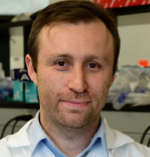
Uladzimir Karniychuk,
VIDO-InterVac and the University of Saskatchewan.
“Uterine and Fetal Responses to Zika Virus Infection in the Porcine Model.”
Uladzimir Karniychuk received his DVM in 2005 from the Vitebsk State Academy of Veterinary Medicine, Belarus, and completed his PhD in Veterinary Medicine at the Ghent University, Belgium, in 2012. During his PhD training, he worked on the pathogenesis of PRRSV infection caused by a highly pathogenic East European virus strain and PRRSV-host interactions in the endometrium and placenta. As a postdoctoral fellow at McMaster University and University Health Network, he helped to develop the humanized mouse model for HIV-1 infection and ferret model for severe/lethal human H1N1 influenza infections. Dr. Karniychuk joined VIDO-InterVac in 2016 and is currently leading a Zika virus project.

Michael Kogut,
Food and Feed Safety Research, United States Department of Agriculture – Agricultural Research Service.
“Gut Health in Food Animals, Especially in Chickens.”
Dr. Kogut has been a researcher for over 30 years, the last 24 of which have been with the USDA-ARS. He has authored more than 170 publications and presented more than 90 papers at various scientific forums (including universities, pharmaceutical companies, poultry breeders, and conferences); more than half have been by invitation. He is an authority on heterophil immunobiology, avian gut health, and poultry innate immunity/Salmonella research. Dr. Kogut’s research focuses on antibiotic-alternatives and the development of cost-effective, pre-harvest interventions to improve gut health by studying : (1) the role of the microbiota in immunity to infection; (2) the role of dietary metabolites in promoting immune regulation and pathogen-response; (3) tissue-specific response to infection, (4) novel molecular targets that mediate dietary compounds; actions in inflammation and immunity; and (5) how diet modulates gut microbiome and mucosal immune response. Dr. Kogut has been the Scientific Organizer of five annual Symposia on Gut Health in Production Animals; he is currently the Chief Specialty Editor for Frontiers in Veterinary Infectious Diseases. He serves on the Editorial Boards of Developmental and Comparative Immunology and The Open Immunology Journal, as Associate Editor for the Immunology, Health, and Disease section of Poultry Science, and as Guest Co-editor for a Special Issue on Avian Immunology for Developmental and Comparative Immunology. Dr. Kogut is recognized as a major contributor to and accomplished leader of scientific research in food safety research.

Beatriz Martínez-López,
Associate Professor, Department of Medicine and Epidemiology, Veterinary School, University of California, Davis.
“Big Data and Smart-Connected Epidemiology in Practice.”
Beatriz Martínez-López is Associate professor of infectious disease epidemiology at the Department of Medicine & Epidemiology, Veterinary School, UC Davis and Director of the Center for Animal Disease Modeling and Surveillance (CADMS) since January 2014. She completed her DVM at University Complutense (UCM, Spain) in 2004, her MPVM at UC Davis in 2007 and her PhD in Veterinary Epidemiology at UCM in 2009. She has more than 70 publications related with the development and implementation of quantitative methods such as epidemiological modeling, risk assessment, geostatistical methods or network analysis. Currently, she is leading the development, implementation and validation of novel Big Data analytical and visualization tools and their integration into operational, web-based, user-friendly platforms such as the Disease BioPortal (http://bioportal.ucdavis.edu/) to more timely support animal health decisions in livestock and aquaculture industries.
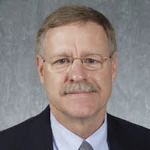
Terry F. McElwain,
Regents Professor Emeritus, Paul G. Allen School for Global Animal Health, Washington State University.
“Impact of animal health at the community/household level in developing nations”
Dr. McElwain received his B.S. (1978) and D.V.M. (1980) degrees from Kansas State University, and his PhD in infectious diseases and immunology from Washington State University (1986). He is a Diplomate (1985) of the American College of Veterinary Pathologists. Dr. McElwain held a faculty appointment as Regents Professor at Washington State University, where he also served as Director and Executive Director of the Washington Animal Disease Diagnostic Laboratory, Director of the Animal Health Research Center, and was a co-founder and Associate Director of the Paul G. Allen School for Global Animal Health. He is a AAAS Medical Sciences Fellow, and in 2009 was elected to the National Academy of Sciences, Institute of Medicine. Dr. McElwain is a Past President of the American Association of Veterinary Laboratory Diagnosticians, and is a member of the Board of Directors of the World Association of Veterinary Laboratory Diagnosticians. In 2006, he received the USDA Administrator’s Award in recognition of his leadership in development of the National Animal Health Laboratory Network, the first time this award was given to an individual from academia. He has been recognized with the University of Missouri Niemeyer Lectureship, the Schalm Lectureship at the University of California-Davis, and the Science in Medicine Lectureship at the University of Washington. In 2017 he received the K.F. Meyer/James H. Steele Gold-Headed Cane Award from the American Veterinary Epidemiology Society in recognition of his career contributions to global disease surveillance and public health. Dr. McElwain continues to hold an academic appointment as Regents Professor Emeritus in the Paul G. Allen School for Global Animal Health, and currently serves on the founding Board of Directors of the Foundation for Food and Agriculture Research.

Steve Osofsky,
Jay Hyman Professor of Wildlife Health & Health Policy and AHEAD Program Coordinator, Cornell University.
“Beyond fences: Policy options for wildlife, livelihoods and transboundary animal disease management in southern Africa”
Steven A. Osofsky, DVM is the Jay Hyman Professor of Wildlife Health & Health Policy at Cornell University’s College of Veterinary Medicine. Osofsky is one of the pioneers of the One Health movement, having led the drafting of the core Manhattan Principles on One World, One Health in 2004. He has developed, launched and managed some of the first major applied One Health programs, including the AHEAD (Animal & Human Health for the Environment And Development) Program (launched in South Africa in 2003) and the HEAL (Health & Ecosystems: Analysis of Linkages) Program (launched in 2009), which became the Planetary Health Alliance in 2016. As the only veterinarian serving on The Rockefeller Foundation-Lancet Commission on Planetary Health, he was able to bring his range of practical experiences (from both health and environmental conservation perspectives) to the task of shaping the highly interdisciplinary conceptual approach underpinning the field of Planetary Health. Professor Osofsky previously held senior positions at the World Wildlife Fund (WWF) and the Wildlife Conservation Society (WCS), as well as with the Government of Botswana. He was also honored to serve as an American Association for the Advancement of Science (AAAS) Science and Diplomacy Fellow, working as a Biodiversity Program Specialist at the U. S. Agency for International Development (USAID). Steve has recently helped the University launch a new Center of Excellence, housed at the College of Veterinary Medicine – Wildlife Health Cornell (wildlifehealthcornell.org).

Andrew Pekosz,
Department of Molecular Microbiology and Immunology and Department of Environmental Health and Engineering, Johns Hopkins University.
“Influenza Surveillance and the Identification of Novel Genetic Mutations that Facilitate Virus Circulation.”
Andrew Pekosz received his BS in Biochemistry from Rutgers University and his Ph.D. in Molecular and Cell Biology from the University of Pennsylvania. Dr. Pekosz joined the Department of Molecular Microbiology and Immunology at the Johns Hopkins Bloomberg School of Public Health in July, 2007. He is an expert on the basic biology of influenza and other emerging and zoonotic virus infections. Dr. Pekosz is the co-Director of the Johns Hopkins Center for Excellence in Influenza Research and Surveillance (JH-CEIRS) and Director of the Center for Emerging Viral Infectious Diseases (CEVID). He has authored more than 75 scientific papers, is on the editorial board for several journals and has served on a number of National Institute of Health scientific and policy review boards focused on biosafety and biocontainment. He has been interviewed on the topics of influenza, biosafety, emerging infectious diseases and pandemic preparedness by a number of news agencies including National Public Radio’s the Diane Rehm Show, the Associated Press (AP), the Baltimore Sun, the New York Times, the Washington Post, Cable News Network (CNN), CSPAN, British Broadcasting Company (BBC), France24, Voice of America, the Discovery Channel and numerous local radio and television stations.
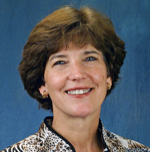
Valerie Ragan,
Director, Center for Public and Corporate Veterinary Medicine, Virginia-Maryland College of Veterinary Medicine.
“Bovine brucellosis and tuberculosis: International challenges”
Dr. Ragan is director of the Center for Public and Corporate Veterinary Medicine with the Virginia-Maryland College of Veterinary Medicine, focused on veterinary public practice, including providing opportunities for student engagement in national and international veterinary and animal health organizations. Dr. Ragan also works around the world on the control and eradication of brucellosis, and on projects related to veterinary capacity building. Prior to joining VMCVM, Ragan led a veterinary consulting company engaged in resolving animal health issues and international veterinary capacity building. Before initiating her consulting company and after five years as a small animal practitioner, Ragan transitioned to the Veterinary Services program with the Animal and Plant Health Inspection Service with USDA, where she began her work as a field veterinary medical officer. She then served as an area epidemiologist in two states, before being promoted to senior staff veterinarian, serving as the National Brucellosis Epidemiologist. She subsequently was appointed assistant deputy administrator of Veterinary Services where she served as the national animal health surveillance coordinator and established the National Surveillance Unit at USDA’s Center for Epidemiology and Animal Health. Ragan attended Virginia Tech before receiving her DVM from the University of Georgia. She also completed post-graduate work in biostatistics and epidemiology at the University of Michigan’s School of Public Health. She is very engaged in providing career transition counseling and training for veterinarians wishing to make career changes.

Artur Summerfield,
Institute of Virology and Immunology, University of Bern.
“Delineating Dendritic Cell Subsets and their Responses to Classical Swine Fever Virus Infection in Lymphoid Tissue.”
Professor Artur Summerfield is a veterinary immunologist with particular interest on the biology antigen presenting cells including dendritic cells, macrophages and B cells of pigs and ruminants. In addition, his research aims to identify pathways for immune stimulation, and to understand the mechanisms of how viruses induce disease and evade the host immune response with a focus on phagocyte-pathogen interaction. He studied veterinary medicine in Berlin and obtained his PhD 1994 in Tübingen at the Federal Research Center for Viral Diseases (now Friedrich-Löffler-Institute) Germany. He then moved to the Institute of Virology and Immunology in Mittelhäusern, Switzerland first as postdoctoral scientist and deputy head of the Cell Biology Department. In 2006, he became head of the Laboratory of Immunology and in 2010 of the Research Department at this Institute. In 2013, he was nominated Professor of Veterinary Immunology at the Vetsuisse Faculty of the University of Bern.

Julia Szymczak,
Perelman School of Medicine and the Center for Clinical Epidemiology and Biostatistics, University of Pennsylvania.
“The Social Determinants of Prescribing: Leveraging Social Science to Improve the Use of Antibiotics.”
Julia E. Szymczak, PhD, is an Assistant Professor of Epidemiology at the Perelman School of Medicine at the University of Pennsylvania (PENN) and a Senior Scholar in the Center for Clinical Epidemiology and Biostatistics at PENN. Dr. Szymczak is a medical sociologist who specializes in the social and cultural dynamics of healthcare work. Her research interests include infection prevention, antimicrobial stewardship, work and organizations, patient safety, quality improvement and implementation science. Her work is focused on understanding why change in healthcare is so difficult, and the socioadaptive factors that shape efforts to improve the quality of medical care. Dr. Szymczak has received funding from the U.S. Centers for Disease Control and Prevention (CDC), National Cancer Institute (NCI), Agency for Healthcare Research and Quality (AHRQ) and the Patient-Centered Outcomes Research Institute (PCORI). Her research has appeared in journals such as Social Science and Medicine, The Milbank Quarterly, JAMA Pediatrics and Journal of Health and Social Behavior.

Montserrat Torremorell,
Department of Veterinary Population Medicine, College of Veterinary Medicine, University of Minnesota.
“Transmission and Control of Influenza: The Role of the Piglet.”
Dr. Montserrat Torremorell is an Associate Professor in the Department of Veterinary Population Medicine at the College of Veterinary Medicine. She earned her DVM degree from the University Autonomous of Barcelona in 1994 and her PhD from the University of Minnesota in 1999. Dr. Torremorell joined the University of Minnesota as the Leman Chair in Swine Health and Productivity in May 2009. Prior to that, she was employed at Genus/PIC, the largest swine breeding company in the world, where she led the efforts in PRRSV elimination and conducted research and technical support. Dr. Torremorell has an extensive background in swine health, research, and production systems, including health improvement strategies, disease eradication, diagnostics, biosecurity programs, and health genomics. She currently conducts research in influenza transmission and control to mitigate the burden of influenza infections in pigs. She also researches biosecurity technologies with applicability to prevent and mitigate airborne infections in pigs. She teaches in Veterinary Medicine to DVM and graduate students and is passionate about helping producers and veterinarians to apply science to control diseases. She is also the director of the Swine Disease Eradication Center at the College of Veterinary Medicine at the University of Minnesota. Dr. Torremorell is the author of more than 70 peer-reviewed journal articles and more than 200 abstracts and articles in conference proceedings. She was awarded with the Allen D. Leman Science In Practice Award from the University of Minnesota in 2003 for the work on PRRS elimination and in 2017 she received the prestigious Zoetis Award for Research Excellence at the University of Minnesota College of Veterinary Medicine.

Chong Wang,
Department of Veterinary Diagnostic and Production Animal Medicine and Department of Statistics, Iowa State University.
“Spatio-Temporal Approaches to Surveillance Sampling for Disease Detection.”
Chong Wang is an Associate Professor in the Department of VDPAM and the Department of Statistics at Iowa State University where he has been a faculty member since 2009. He completed his Ph.D. in Statistics with minor in Epidemiology at Cornell University in year 2006. His research interests lie in statistical methods and theories with their applications to biology and medicine. He has authored 138 peer reviewed publications which are all related to statistical method development, data analyses, and design of studies.
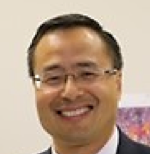
Qijing Zhang,
Professor and Frank Ramsey Endowed Chair in Veterinary Medicine, Iowa State University.
“Deciphering Bacterial Pathogenesis: Harnessing the Power of Genomics and Experimental Evolution.”
Dr. Zhang is a Professor and the holder of Frank Ramsey Endowed Chair in the Department of Veterinary Microbiology and Preventive Medicine at Iowa State University. Dr. Zhang’s research focuses on pathogenic and antibiotic resistance mechanisms of bacterial organisms important for animal health and public health. Dr. Zhang’s group discovered a hypervirulent Campylobacter jejuni clone that causes sheep abortion and foodborne illnesses in humans. Using genomics, animal models, and experimental evolution, his work identified the specific genetic changes responsible for the hypervirulence, opening the door for developing effective interventions against this zoonotic pathogen.
2018 Honors and Awards
2018 CRWAD Dedicatee:
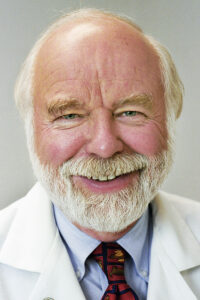
Ronald D. Schultz, PhD
Professor Emeritus, University of Wisconsin
We are pleased to announce that CRWAD 2018 will be dedicated to Professor Emeritus Ronald D. Schultz. Ron received his PhD in microbiology at Penn State (1970) under the direction of Dr. Howard Dunne. He held faculty appointments at Cornell and Auburn Schools of Veterinary Medicine before becoming Founding Chair of the Department of Pathobiological Sciences at the new School of Veterinary Medicine in 1982. He served as Chair for 31 years and retired to Emeritus status in 2016. Throughout his career, Ron emphasized the translational aspects of immunological research, especially the development and assessment of immunodiagnostics and vaccines in domestic animal species. Ron was an enthusiastic supporter of CRWAD for 50 years and served as President in 1994. He led development of the American Association of Veterinary Immunologists and served as its first President in 1979. Ron has received numerous awards including the first Distinguished Veterinary Immunologist Award in 1988, and being named an Honorary Diplomate of the American College of Veterinary Microbiologists. He instilled dedication to CRWAD in his trainees and faculty, many of whom continue to attend and support CRWAD.
2018 Distinguished Veterinary Immunologist:
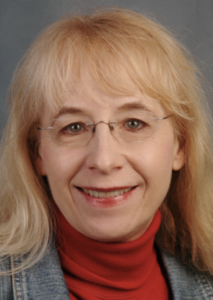
Laurel J. Gershwin, DVM, PhD, Diplomate ACVM
Professor, University of California – Davis
The American Association of Veterinary Immunologists (AAVI) is pleased to announce that Dr. Laurel Gershwin has been named as the 20018 Distinguished Veterinary Immunologist. Dr. Gershwin received her DVM from the University of California, Davis in 1971. After an internship at the Angell Memorial Animal Hospital in Boston, MA and two years in private veterinary practice, she returned to UCD where in 1979 she obtained a PhD in Microbiology, with an emphasis in Immunology. Dr. Gershwin took and passed the board examination in virology, immunology, and bacteriology/mycology to become a diplomate of the American College of Veterinary Microbiologists in 1980. She has been a faculty member at the School of Veterinary Medicine, UCD since 1979 and has taught Immunology to students of Veterinary Medicine for 38 years. Dr. Gershwin’s research has emphasized immune responses in the lung with particular emphasis on IgE mediated pathogenesis, Bovine Respiratory Syncytial Virus, and associated vaccinology.
2018 Distinguished Veterinary Microbiologist:

Ab Osterhaus, DVM, PhD
Professor and Director, Research Center for Emerging Infections and Zoonoses, University of Veterinary Medicine Hannover, Germany.
The American College of Veterinary Microbiology (ACVM) is pleased to announce that Professor Ab Osterhaus has been selected as the 2018 Distinguished Veterinary Microbiologist. As professor of Virology in Hannover, Rotterdam and Utrecht, Dr. Osterhaus has a long track record as an internationally recognized scientific researcher and principal investigator of numerous major scientific projects. Currently, Prof. Osterhaus is founding director of the newly established Research Center for Emerging Infections and Zoonoses (RIZ) at the University of Veterinary Medicine Hannover, Germany. As former head of the Department of Viroscience of the Erasmus Medical Center in Rotterdam, he guided on a daily basis over 100 scientists in their quest for scientific excellence. His research programme followed a novel integrated “viroscience” concept, bringing together world-leading scientists in molecular virology, immunology, epidemiology, pathogenesis, and intervention studies on human and animal virus infections. Major achievements of his work include the discovery of more than 60 new human and animal viruses (e.g. human metapneumovirus, coronaviruses, influenza viruses), elucidation of the pathogenesis of major human and animal virus infections, and development of innovative intervention strategies. His work has enabled health authorities, as WHO, to combat disease outbreaks like SARS, MERS and avian influenza. As Chief Scientific Officer at Viroclinics Biosciences BV, Osterhaus leads effective testing and refining of preventive, therapeutic, and diagnostic tools. He has been mentor for more than 80 PhD students, holds several key patents, and is the author of more than 1200 papers in peer-reviewed journals. Most of all, Ab Osterhaus firmly believes scientists have a role to play in translating their knowledge for the benefit and protection of society.
2018 Calvin W. Schwabe Award for Lifetime Achievement in Veterinary Epidemiology and Preventive Medicine:
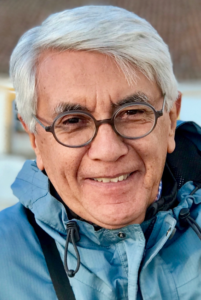
Alfonso Torres, DVM, MS, PhD
Professor Emeritus, Cornell University
Dr. Alfonso Torres is the 2018 recipient of the Calvin W. Schwabe Award, presented by the Association for Veterinary Epidemiology and Preventive Medicine (AVEPM). Dr. Torres is a native of Colombia, and received his DVM from the National University of Colombia, his MS degree in veterinary pathology from the University of Nebraska, and a PhD in medical microbiology, specializing in virology, from the University of Nebraska Medical Center. Dr. Torres served as Deputy Administrator of USDA-APHIS-Veterinary Services from 1999 to 2002. In that capacity he was also the United States’ Chief Veterinary Officer and the US delegate to the World Organization for Animal Health (OIE). From 1996 to 1999, Dr. Torres was the Director of the Plum Island Animal Disease Center on Plum Island, NY. While at PIADC, Dr. Torres also served as chief of USDA’s Foreign Animal Disease Diagnostic Laboratory from1994 to1996. Prior to working for the USDA, Dr. Torres served as a veterinary virologist on the faculty of University of Nebraska and Cornell University from 1978-1987, and then worked for SmithKline Beecham Animal Health from 1987-1991. Dr. Torres returned to Cornell University in 2003 to serve as Professor and Associate Dean for Public Policy at the College of Veterinary Medicine, retiring in 2015. Among Dr. Torres’ awards are the 1998 “Daniel E. Salmon Award”, presented by US Secretary of Agriculture; a 2001 “Meritorious Executive” award presented by President George W. Bush; the 2010 “Karl F. Meyer-James H. Steele Gold Head Cane Award” from the American Veterinary Epidemiological Society; and the 2010 “USDA-APHIS Administrator Award”.
The Calvin W. Schwabe Award recognizes lifetime achievement in veterinary epidemiology and preventive medicine. Previous recipients of this prestigious award include Drs. Calvin Schwabe, Robert Anderson, James Steele, S. Wayne Martin, Clive Gay, David Hird, Hollis Erb, Preben Willeberg, Dale Hancock, Ian Dohoo, Yrjo Grohn, Roger Morris, Will Hueston, and Ian Gardner.
2018 Special Sessions
- CRWAD 2018
- General Sessions:
Dec 2 (1 pm) to Dec 4 (1 pm). - CRWAD 2018 Meeting Dedication and Conference Keynote:
Dec 2 (5:00 pm). - CRWAD 2018 Opening Reception and Poster Session I:
Dec 2 (6:30 – 8:30 pm). - CRWAD Business Meeting & Listening Session:
Dec 3 (3:30-4:15 pm). - Poster Session II:
Dec 3 (5:45 – 8:00 pm). - Award Presentations and Closing Comments (Attendance is requested for students entering competitions). Dec 4 (12:15-1:30 pm).
- General Sessions:
- USDA-NIFA Project Directors Meeting (invitation required):
Dec 2 (10:30 am to 12:30 pm). - International Brucellosis Society (registration required):
Dec 1-2. - North American Symposium on PRRS, and Emerging Diseases of Swine (registration required). Oral Presentations: Dec 1 (morning) to Dec 2 (noon), Posters: Dec 2 (6 pm to 8 pm).
- NC1202 – Enteric Diseases of Food Animals (invitation required):
Dec 1-2.
- Calvin Schwabe Symposium on veterinary epidemiology and preventing medicine –
Hosted by AVEPM:
Dec 2 (1 pm to 5 pm). - NC229 – New Science: Insights for Control of Swine Viral Diseases:
Dec 2 (1 pm to 5 pm).
- AAVI and SMI – Mucosal Immunology in Animals:
Dec 3 (2 pm to 6 pm).
2018 Schedule at a Glance
See “PDF Downloads” for the 2018 CRWAD Schedule Grid
